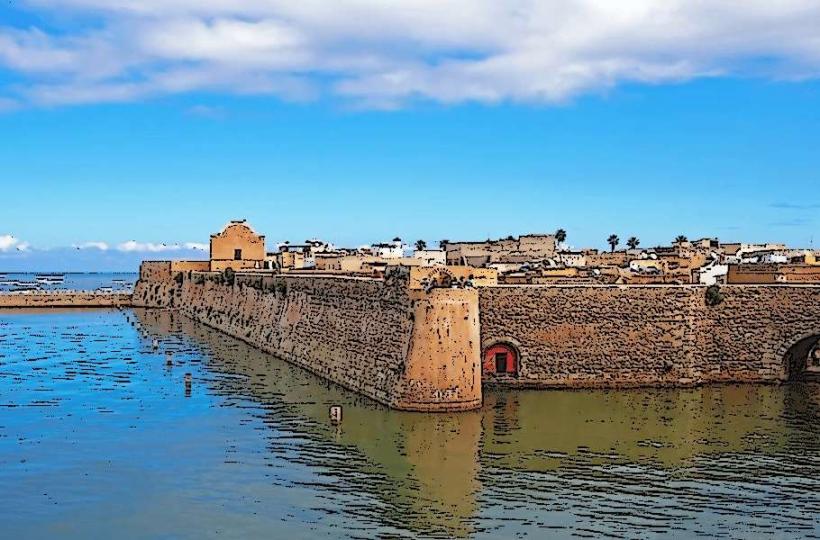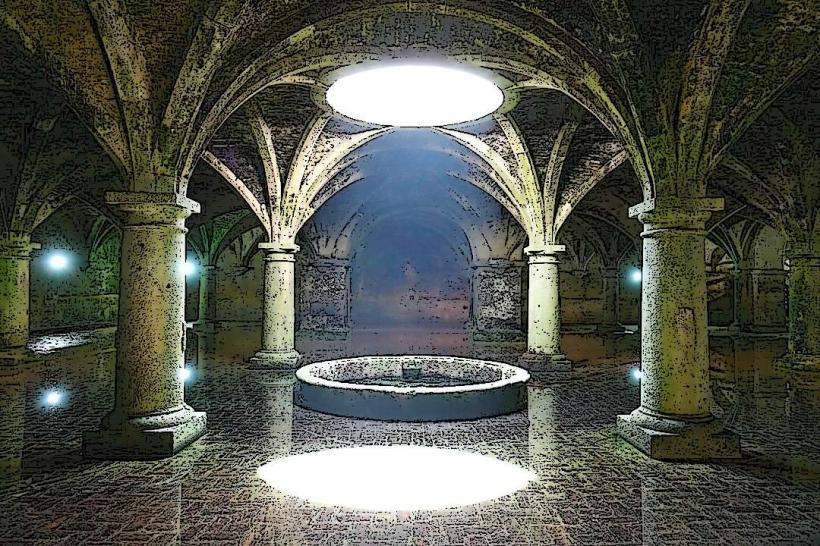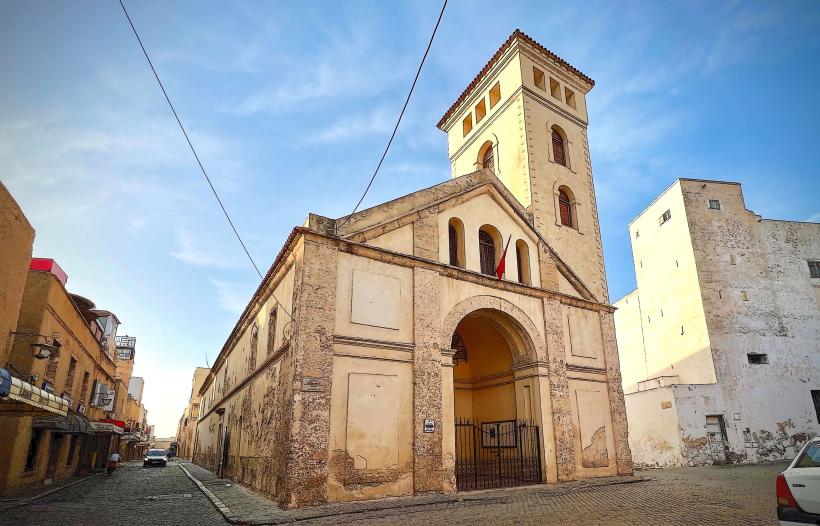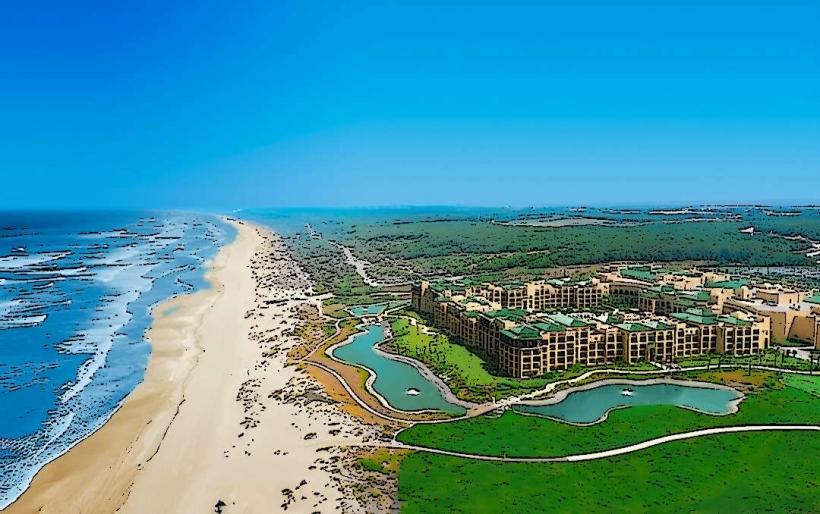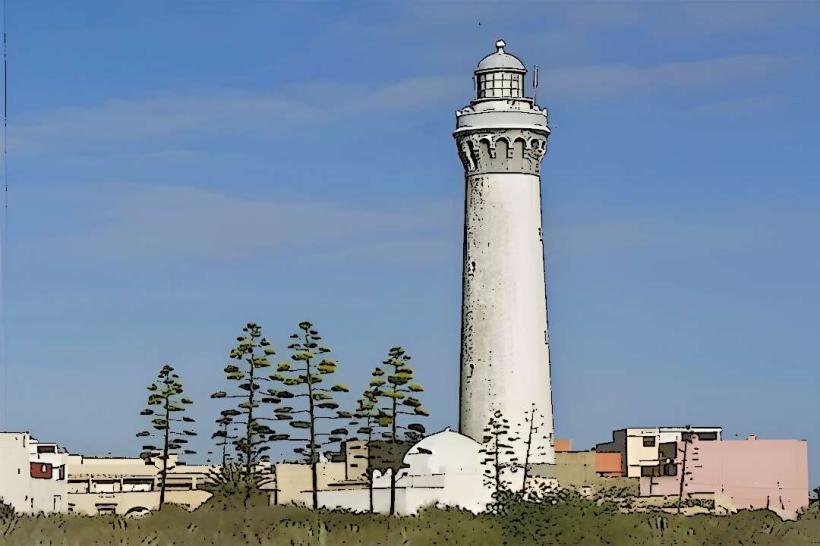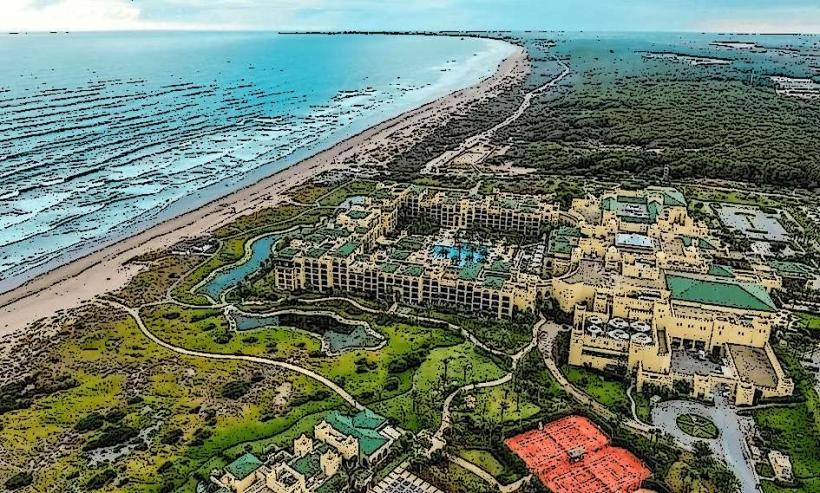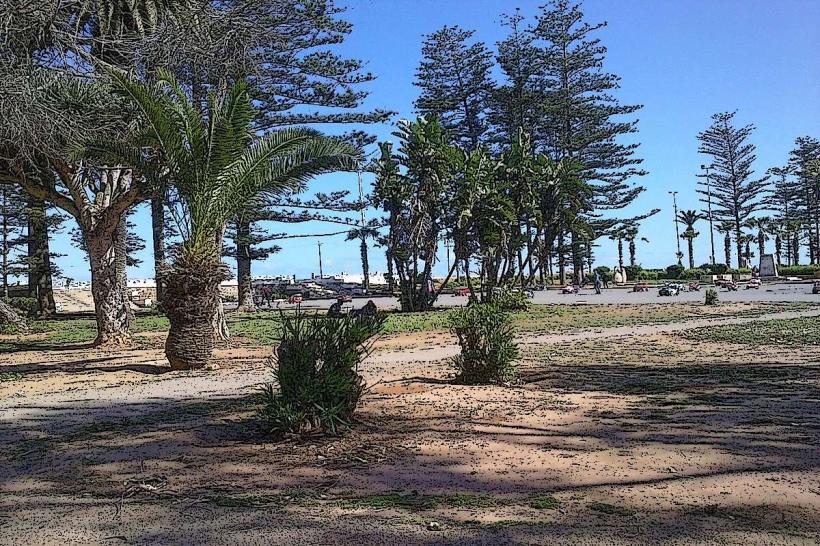Information
Landmark: Deauville BeachCity: El Jadida
Country: Morocco
Continent: Africa
Deauville Beach, El Jadida, Morocco, Africa
Deauville Beach is a historic and elegant seaside destination located in Deauville, a coastal town in the Normandy region of northwestern France. Known as the “Queen of the Norman Beaches”, it has long been associated with luxury, Parisian high society, and refined leisure. The beach is part of a broader cultural and architectural ensemble that has made Deauville famous since the 19th century.
1. Historical Background
Deauville Beach’s history is closely tied to the rise of Deauville itself, which transformed from a small fishing village into a fashionable resort in the mid-19th century. This development was largely due to Charles Eugène, Duke of Morny, half-brother of Napoleon III, who saw its potential as a seaside retreat for the Parisian elite.
By the late 1800s and early 1900s, Deauville had become a magnet for aristocrats, artists, and socialites. The beach was central to this reputation, attracting guests for:
Seaside bathing (a health trend of the time)
Elegant promenades along the boardwalk
Cultural events and horse races
Today, Deauville Beach still retains its Belle Époque charm, complemented by modern amenities and international visitors.
2. Geography and Features
Deauville Beach stretches for over 2 kilometers along the English Channel. It is a wide, sandy beach with calm, shallow waters that are safe for bathing, especially during the warmer months.
Key features include:
Fine golden sand: Clean and well-maintained, with enough space for sunbathing, walking, and sports.
Gentle waves: More subdued than Atlantic beaches, making it ideal for families and casual swimmers.
Tidal flats: At low tide, the beach becomes exceptionally wide, exposing wet sand and tidal pools.
The beach is well-organized, with clear signage, designated swimming areas, and safety services such as lifeguards during the summer season.
3. Les Planches – The Iconic Boardwalk
One of Deauville Beach’s most famous landmarks is Les Planches, the legendary wooden boardwalk built in 1923. This 656-meter promenade runs along the edge of the beach and is lined with Art Deco beach cabins, each named after a famous celebrity who has attended the Deauville American Film Festival.
Elegant architecture: Decorative fences and period lighting
Cultural cachet: Visitors can spot names like Clint Eastwood, Cate Blanchett, and Tom Hanks etched on the cabin doors
Photo opportunities: The combination of sea, sand, wood, and film history makes it a favorite backdrop
4. Beach Activities
Deauville Beach combines classic seaside traditions with modern recreation:
Sunbathing and beach lounging: Parasols and chairs are available for rent, and the beach maintains its iconic striped umbrellas, a Deauville trademark.
Swimming: Calm and inviting during high tide, with designated safe zones and lifeguards.
Sand sports: Beach volleyball, football, and children's games are common.
Horseback riding: Deauville is a major equestrian hub, and horseback rides along the beach are popular, especially in the morning.
Sailing and water sports: Small sailboats, paddleboards, and kayaks can be rented near the harbor area.
The beach is also host to beach polo and other equestrian events during festivals or the summer season.
5. Surroundings and Services
Deauville Beach is seamlessly integrated into the urban landscape, just steps from luxury amenities:
Cafés, bars, and bistros: Border the beachfront and offer everything from crêpes to seafood platters
Beach clubs: Offer private cabins, children’s areas, and summer entertainment
Thalassotherapy center: The nearby Thalasso Deauville by Algotherm provides spa treatments based on seawater and marine extracts
Accessibility: Wide promenades and beach access points are designed for easy use by people of all ages and abilities
The entire beachfront is pedestrian-friendly, landscaped with flowers and benches, creating a relaxed, elegant atmosphere.
6. Cultural and Social Significance
Deauville Beach has been immortalized in cinema, literature, and fashion. It’s known for:
The Deauville American Film Festival, held every September, which attracts global celebrities and transforms the beach into a red-carpet destination.
Its appearance in French cinema and novels, often as a symbol of glamour and summer nostalgia.
The Deauville Polo Cup and other equestrian events, connecting beach life to Normandy’s horse culture.
It remains a favored escape for Parisians and international visitors alike, thanks to its timeless blend of luxury, charm, and seaside leisure.
7. Best Time to Visit
June to September: Warmest and most active, with all facilities open and frequent cultural events.
Spring and autumn: Mild weather, fewer crowds, and a quiet, reflective atmosphere.
Winter: Though colder and windier, the beach retains its charm, especially for long walks on Les Planches.
Summary
Deauville Beach is a place where heritage and elegance meet the natural calm of the Normandy coast. With its vast sands, iconic boardwalk, cultural heritage, and ties to cinema and fashion, it offers more than a typical seaside experience. Whether you're coming to swim, relax, ride horses, or attend a festival, the beach remains the heart of Deauville’s timeless allure.

